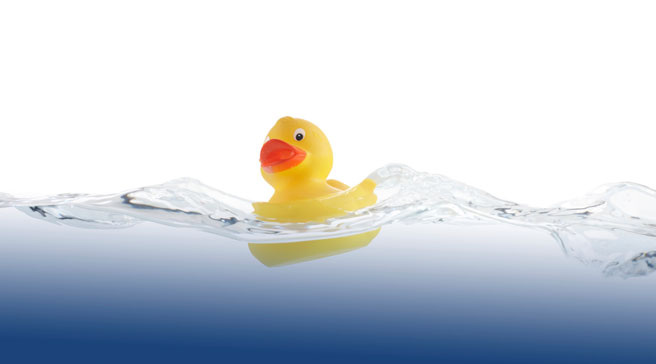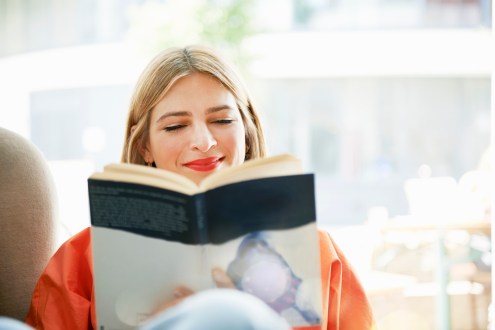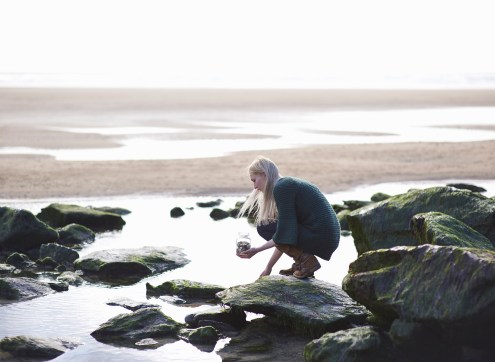Make time for play
Sally Brampton muses on the importance of play

I’ve just been to throw rubber ducks into the sea, which might be considered slightly eccentric, particularly as it was blowing a gale and the English Channel was determined to spit them back on to the shingle. God knows what passers-by thought of two middle-aged women chucking bright yellow ducks into the sea and laughing hilariously as we ran along the beach, picking up strays and chucking them back into the crashing surf. Even the herring gulls looked astonished.
Rubber ducks, I have to say, are not a peculiar perversity of mine. These belonged to the aforesaid friend who was doing a spring clean and, not knowing what to do with the brood of mother and ducklings, decided we should set them afloat, each bearing a wish, hoping they would wash up on a French beach and delight a few garçons. As there was no way they were going to make it across the Channel it was wishful thinking, even though a lovely thought.
But really, it was the hour spent screaming like children that brought the most delight. I got back to work and my computer feeling happy and exhilarated, not quite understanding why, until I realised it was the pleasure of playing – a quality too often forgotten in our sober, stressed, adult world.
That friend and I also bought bikes. Neither of us had ridden one for 40 years and to all those who say it’s as easy as learning to ride a bike, all I can say is, for me, it’s as easy as falling off a bike. We wobbled up and down the promenade, hooting with laughter, as one or other or both of us crashed into a lamp post or toppled over onto railings. Lycra-clad cyclists in go-faster neon sped past us casting supercilious glances, which simply made us laugh even harder. I still can’t manage a hill (and I mean going down, rather than up) so I coast down gently with both feet on the ground, giggling merrily. I don’t care if I look like an idiot, I’m having a good time.
If anybody needs an excuse to bust out of the strait jacket of adult responsibility and act like a kid, here’s a quote from psychologist and author Brian Sutton Smith, who is one of the world’s leading play theorists: ‘The opposite of play is not work, it is depression.’ Playfulness (such a delightful word) is not about the psychological introspection of connecting with your inner child, who is generally portrayed as a sad little victim in need of a hug, but is quite the opposite – exuberant, joyful and confident. As Sutton Smith puts it, ‘To play is to act out and be wilful, exultant and committed, as if one is assured of one’s prospects.’
I haven’t quite got around to building sandcastles (tricky on a pebbled beach) but I can spend an hour happily trying to skim pebbles across the briny water and dancing with elation when I can get one to bounce more than twice. I live in a small town but far from behaving as if I am the local loony, people started to smile at me (well, I’m rather hoping it was with, rather than at, me) and a few joined in. One man said, ‘Blimey, I haven’t done this since I was a kid. It’s really good fun, isn’t it?’ He then proceeded to trounce me with a skimming five-bouncer, and leapt around like a premier-league footballer. ‘Thank you,’ he said, as he straightened his suit and tie, ‘you just made my day.’ Actually, I didn’t. Play made his day.








